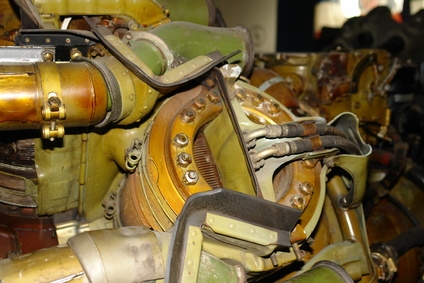
Engine cleaning is very important, especially for older engines that have seen extended use. Old oil in engines can build up contaminants and as these contaminants cycle through the engine, it can create deposits and sludge build-up problems. Engines can also develop carbon deposits in combustion chambers where small particles are ignited along with the fuel and leave build-up. You can use chemicals to clean these deposits.
Engine flushing is a process of injecting high pressure chemicals, usually with some type of solvent, into the fuel injection system. This is designed to remove build-up inside the engine without the need to take the engine apart. If you have a relatively new engine that has been treated well and maintained, use a flushing to remove minor build-up. If you have an old engine that had sludge and deposit problems, do not use a chemical flushing. In these cases a chemical flushing can actually hurt the engine, breaking apart deposits and jamming them in the fuel injection valves to cause even further damage.
If you do decide to flush your engine, take it into an auto body shop to have the work done. You cannot flush your engine yourself without the proper experience and the tools. A good mechanic will measure the pressure of your current fuel injection system and flush the engine at a specific pressure using a high quality compressor. If your engine is in trouble and you need to clean it out more thoroughly, then take some time and take it apart or ask the shop to tear down and clean the engine for you.
If you decided to attempt the cleaning process yourself, set aside a large section of time and choose your ingredients carefully. Use cotton rags or sheets to deal with grease or build-up that is obscuring sections of the engine. There are many different kinds of cleaners available at local auto stores, but choose carefully. A harsh chemical cleaner can burn through car paint as well as grease and carbon. For smaller grease and sludge problems, use a squirt bottle of mineral spirits or citrus-based degreaser instead. Gather the different brushes and scrapers you have for dislodging deposits and remove the build-up spot by spot as you work through the engine. Give the chemicals time to soak in and work before you start scrubbing.
One of the best ways you can clean your engine is with the chemicals already present in your oil. If you have an engine that is experiencing sludge and deposits problems, switch to a high mileage oil that includes extra protectants and sealants. Inferior oils will create even more problems further down the road. If you are in doubt, look in your manual to see what type of oil the manufacturer recommends.